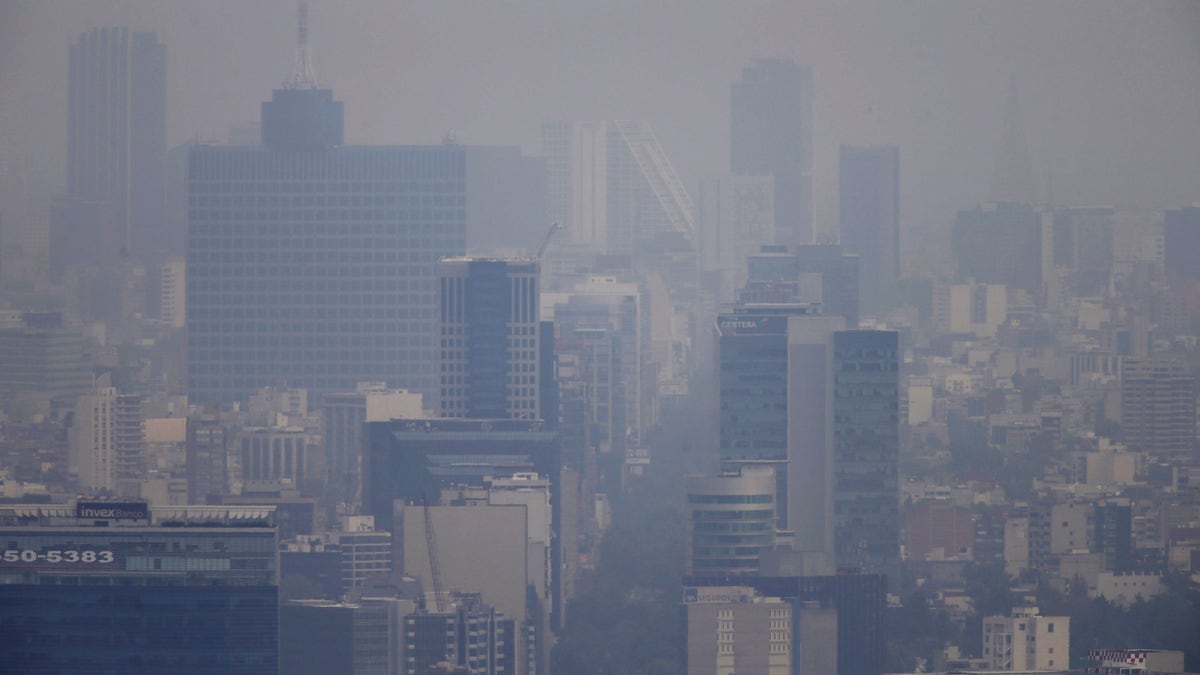
March 16, 2016: Buildings stand shrouded in smog in Mexico City. (Reuters)
The month of March broke temperature records, making it the eleventh month in a row to do so, the National Oceanic and Atmospheric Association reported Tuesday, with North America having the warmest March ever since records began in 1910.
Globally in March, the average temperature across the land and oceans smashed the record, measuring 2.2 degrees Fahrenheit above the 20th-century average, NOAA said. That measurement breaks last year’s record for March by over half a degree Fahrenheit, making it the warmest average temperature for the month across the globe since 1880.
Related: West Antarctic ice sheet could collapse, causing significant sea level rise, experts warn
The mercury climbed to near-historic highs across the world last month. Both Asia and Africa had their third-warmest Marches on record since 1910, South America had its seventh-warmest March, and Australia had its hottest March.
In the Arctic last month, the extent of the sea ice was 7 percent smaller than average, the second-smallest it has been for the month since 1979, when satellite records began.
"It's absolutely disturbing,” Jason Furtado, an assistant professor at the University of Oklahoma School of Meteorology, told the Associated Press. “We're losing critical elements of our climate system."
The year continues to break records so far, according to NOAA. The average temperature across the world’s oceans and continents during the first three months of 2016 was just over 2 degrees Fahrenheit hotter than the 20th-century average, which is the highest it’s been since 1880. That measurement breaks last year’s record by half a degree.
Related: Temperatures hit another record, with February off the charts
Scientists attribute the warming temperatures to both El Nino and human-caused global warming, according to the Associated Press.
Skeptics have largely dismissed fears over man’s impact on global warming, saying climate change has been going on since the beginning of time. They also claim the dangers of a warming planet are being wildly exaggerated and question the impact that fossil fuels have had on climate change.








































